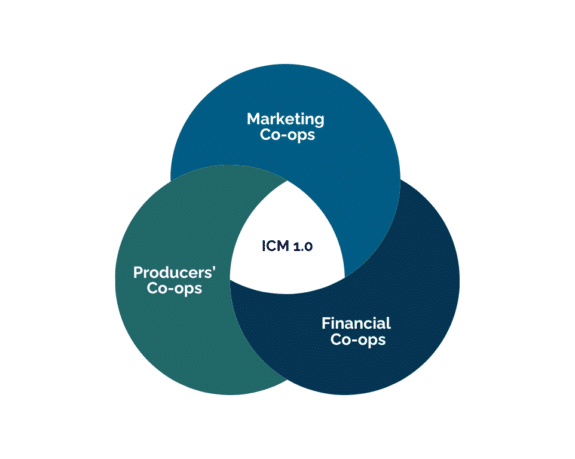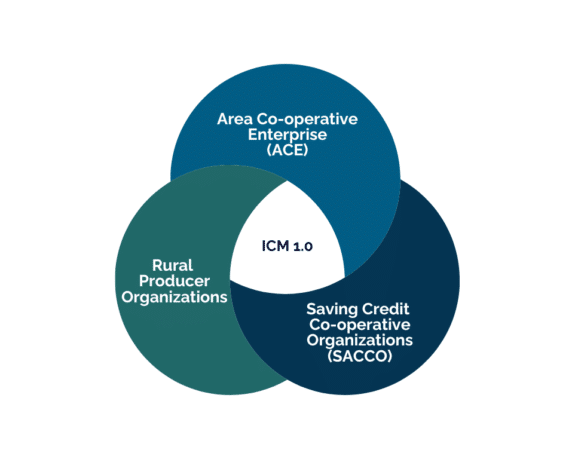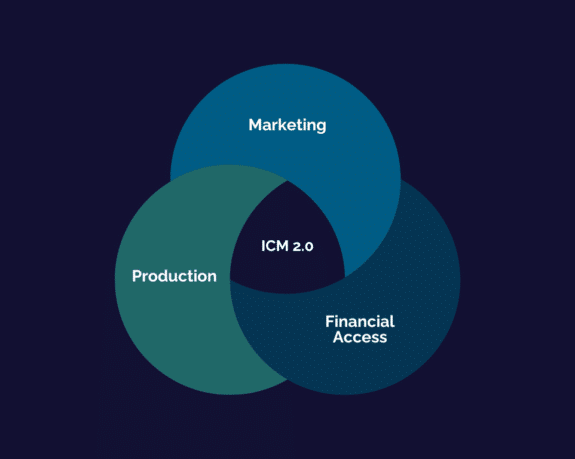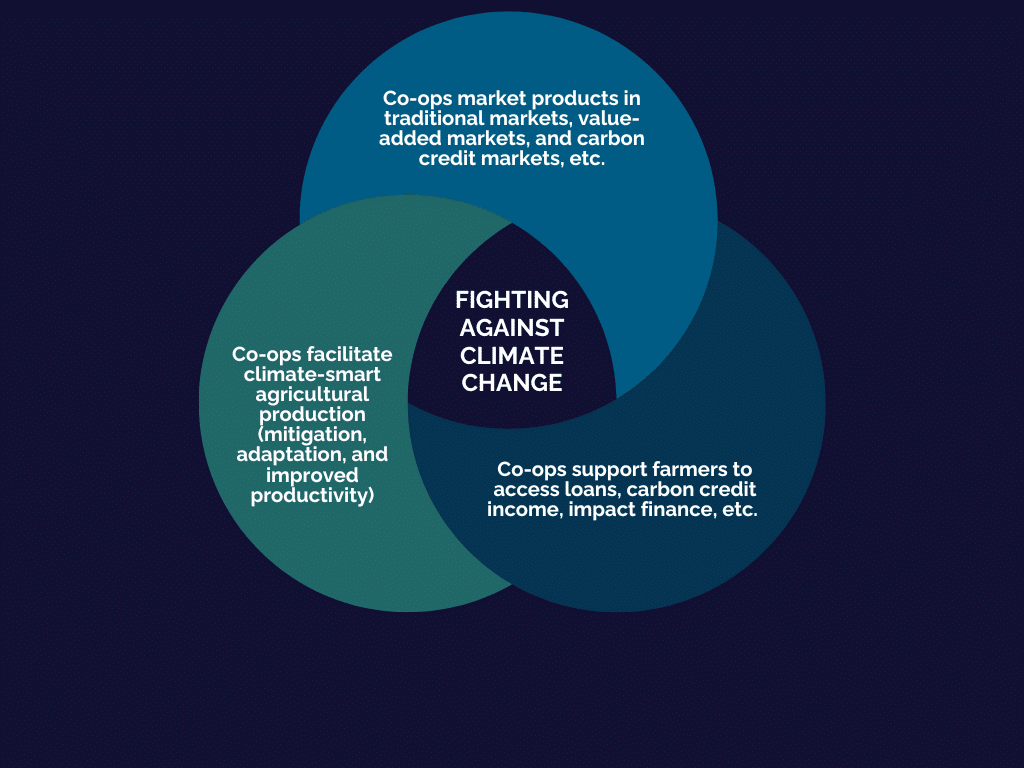
ICM 1.0
The Co-operative Development Foundation of Canada (CDF Canada) created the Integrated Co-operative Model (ICM) as a development approach to improve sustainable, climate-resilient, gender-equitable economic well-being for small producer farmers. This integrated co-operative approach benefits producers – both women and men – by increasing production and productivity, and improving access to markets and financial services.
The original ICM model or ICM 1.0 focuses on promoting an integrated network of co-operatives in the communities. The model involves three types of co-operatives – producer co-ops (focusing on production), marketing co-ops, and financial co-ops – that work closely together to serve the economic needs of both their individual members and the co-operatives themselves. Together, these co-operatives offer a suite of services for a holistic and integrated approach to rural development.

The ICM 1.0 has been used for decades (and is still in use today) by CDF Canada and partners in Uganda, Ghana, Rwanda, Ethiopia, and Colombia. An in-depth study of the integrated model in 2010 found that farmers had improved access to markets and extension services through their production and marketing co-ops, and improved access to credit through their membership in financial co-ops. Implementation of the integrated model resulted in improved household income, as well as increased food security for households headed up by both men and women.


